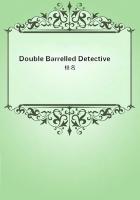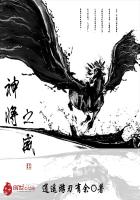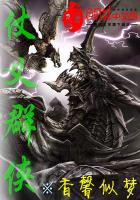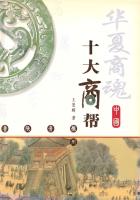Our marriage only waited on the completion of the house which I was building for our occupancy in one of the most desirable parts of the city, that is to say, a part chiefly inhabited by the rich. For it must be understood that the comparative desirability of different parts of Boston for residence depended then, not on natural features, but on the character of the neighboring population. Each class or nation lived by itself, in quarters of its own. A rich man living among the poor, an educated man among the uneducated, was like one living in isolation among a jealous and alien race. When the house had been begun, its completion by the winter of 1886 had been expected. The spring of the following year found it, however, yet incomplete, and my marriage still a thing of the future. The cause of a delay calculated to be particularly exasperating to an ardent lover was a series of strikes, that is to say, concerted refusals to work on the part of the brick-layers, masons, carpenters, painters, plumbers, and other trades concerned in house building. What the specific causes of these strikes were I do not remember. Strikes had become so common at that period that people had ceased to inquire into their particular grounds. In one department of industry or another, they had been nearly incessant ever since the great business crisis of 1873. In fact it had come to be the exceptional thing to see any class of laborers pursue their avocation steadily for more than a few months at a time.
The reader who observes the dates alluded to will of course recognize in these disturbances of industry the first and incoherent phase of the great movement which ended in the establishment of the modern industrial system with all its social consequences.
This is all so plain in the retrospect that a child can understand it, but not being prophets, we of that day had no clear idea what was happening to us. What we did see was that industrially the country was in a very queer way. The relation between the workingman and the employer, between labor and capital, appeared in some unaccountable manner to have become dislocated. The working classes had quite suddenly and very generally become infected with a profound discontent with their condition, and an idea that it could be greatly bettered if they only knew how to go about it. On every side, with one accord, they preferred demands for higher pay, shorter hours, better dwellings, better educational advantages, and a share in the refinements and luxuries of life, demands which it was impossible to see the way to granting unless the world were to become a great deal richer than it then was. Though they knew something of what they wanted, they knew nothing of how to accomplish it, and the eager enthusiasm with which they thronged about any one who seemed likely to give them any light on the subject lent sudden reputation to many would-be leaders, some of whom had little enough light to give. However chimerical the aspirations of the laboring classes might be deemed, the devotion with which they supported one another in the strikes, which were their chief weapon, and the sacrifices which they underwent to carry them out left no doubt of their dead earnestness.
As to the final outcome of the labor troubles, which was the phrase by which the movement I have described was most commonly referred to, the opinions of the people of my class differed according to individual temperament. The sanguine argued very forcibly that it was in the very nature of things impossible that the new hopes of the workingmen could be satisfied, simply because the world had not the wherewithal to satisfy them. It was only because the masses worked very hard and lived on short commons that the race did not starve outright, and no considerable improvement in their condition was possible while the world, as a whole, remained so poor. It was not the capitalists whom the laboring men were contending with, these maintained, but the iron-bound environment of humanity, and it was merely a question of the thickness of their skulls when they would discover the fact and make up their minds to endure what they could not cure.
The less sanguine admitted all this. Of course the workingmen's aspirations were impossible of fulfillment for natural reasons, but there were grounds to fear that they would not discover this fact until they had made a sad mess of society.
They had the votes and the power to do so if they pleased, and their leaders meant they should. Some of these desponding observers went so far as to predict an impending social cataclysm.
Humanity, they argued, having climbed to the top round of the ladder of civilization, was about to take a header into chaos, after which it would doubtless pick itself up, turn round, and begin to climb again. Repeated experiences of this sort in historic and prehistoric times possibly accounted for the puzzling bumps on the human cranium. Human history, like all great movements, was cyclical, and returned to the point of beginning. The idea of indefinite progress in a right line was a chimera of the imagination, with no analogue in nature. The parabola of a comet was perhaps a yet better illustration of the career of humanity. Tending upward and sunward from the aphelion of barbarism, the race attained the perihelion of civilization only to plunge downward once more to its nether goal in the regions of chaos.
This, of course, was an extreme opinion, but I remember serious men among my acquaintances who, in discussing the signs of the times, adopted a very similar tone. It was no doubt the common opinion of thoughtful men that society was approaching a critical period which might result in great changes. The labor troubles, their causes, course, and cure, took lead of all other topics in the public prints, and in serious conversation.
The nervous tension of the public mind could not have been more strikingly illustrated than it was by the alarm resulting from the talk of a small band of men who called themselves anarchists, and proposed to terrify the American people into adopting their ideas by threats of violence, as if a mighty nation which had but just put down a rebellion of half its own numbers, in order to maintain its political system, were likely to adopt a new social system out of fear.
As one of the wealthy, with a large stake in the existing order of things, I naturally shared the apprehensions of my class. The particular grievance I had against the working classes at the time of which I write, on account of the effect of their strikes in postponing my wedded bliss, no doubt lent a special animosity to my feeling toward them.














